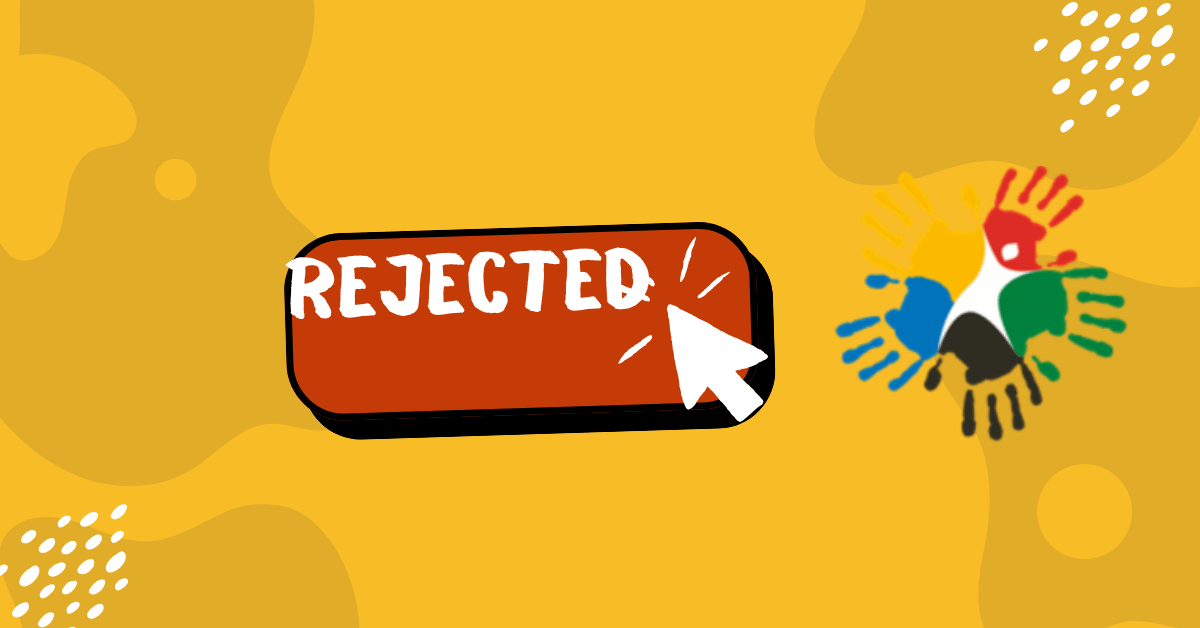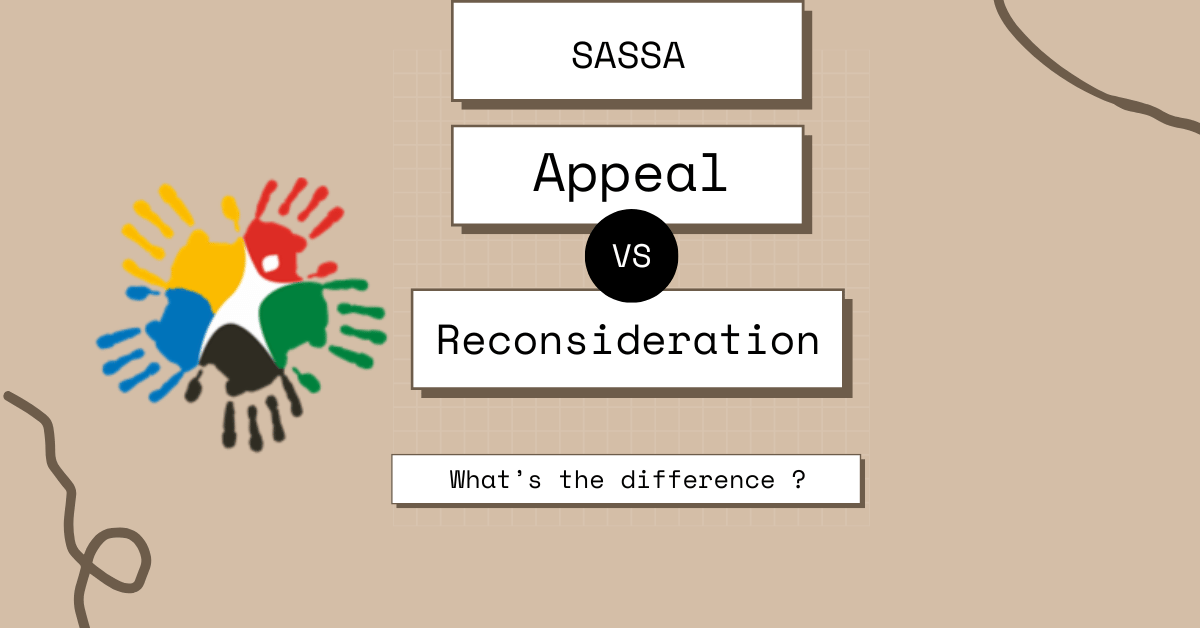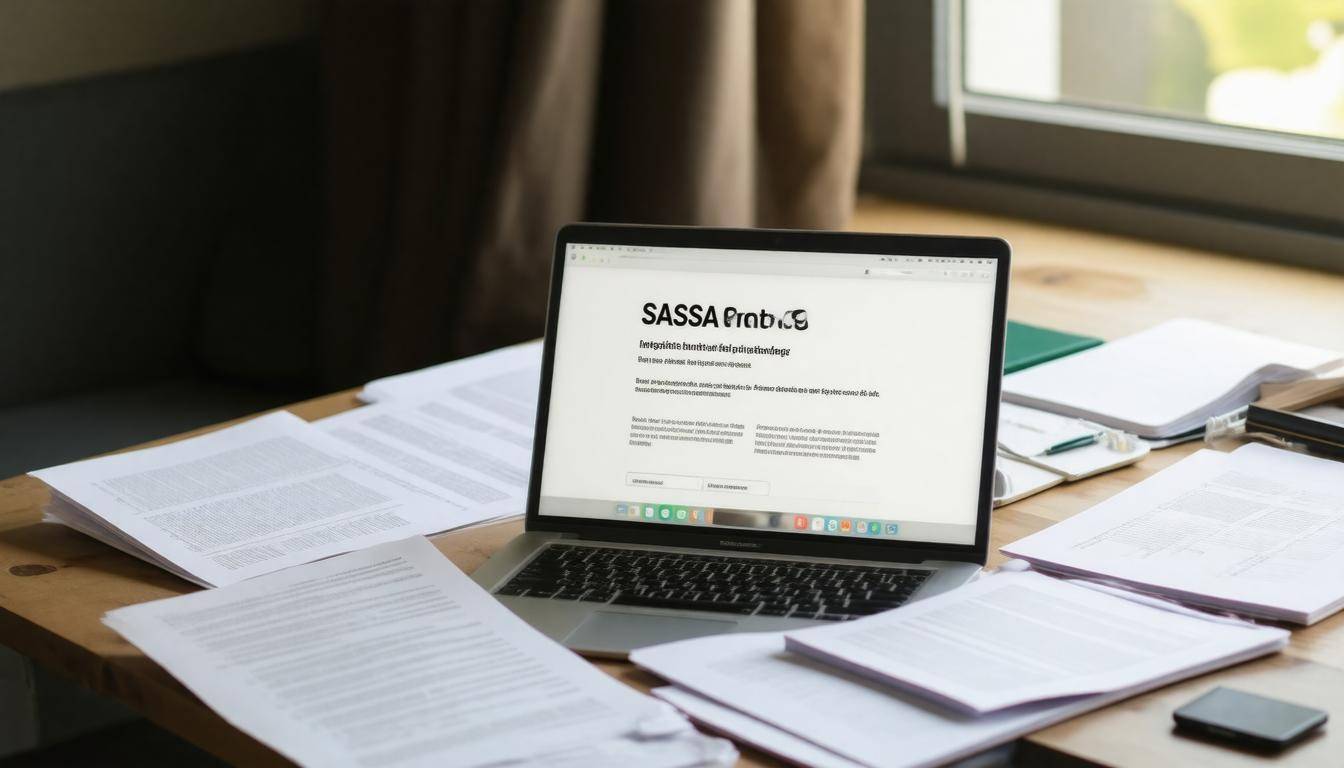Navigating the world of government grants can seem like a daunting challenge, especially when your application doesn’t go as planned. For many, the SASSA R370 grant represents a crucial lifeline during tough times, only to be met with disappointment when it gets denied. Understanding what happens next is critical—and even more so is knowing how to effectively turn that denial into a successful appeal. By breaking down the steps needed and addressing common mistakes, this guide aims to help you regain your footing and secure the support you deserve. Let’s dive into what to do immediately after receiving that disappointing news and how to monitor your payment status effectively. Having a clear status check in place to track your application is invaluable.
If your SASSA R370 grant application is declined, the first step is to understand the reason for the denial, which you can typically find in the notification letter from SASSA. You should then review your eligibility against the criteria and gather necessary documentation before appealing the decision within one month of receiving your message from SASSA. Regularly checking your account for updates can also provide valuable insights into your application response and payment status. Utilize available resources to ask questions regarding your SASSA status and ensure you have the correct phone number for queries.

Reasons for SASSA R370 Grant Denial
The denial of a SASSA R370 grant application can feel disheartening, especially when you’re relying on that support during tough economic times. A few common reasons frequently surface when applications are rejected, making it essential to understand these pitfalls so you can navigate them effectively. Keeping track of your payment status can help ensure timely updates and responses, much like a business keeps its accounts in order.
One of the most noted reasons is not meeting the financial criteria set forth by SASSA. It’s vital to keep in mind that the R370 grant aims to assist those who truly need it; thus, applicants with incomes exceeding certain thresholds may find their payments turned down. Before proceeding, perform a thorough status check to ensure your income aligns with the required guidelines.
According to recent reports from SASSA, approximately 20% of all denials stem from applicants’ incomes being beyond the allowed limits. Be sure to know your financial situation thoroughly before applying and ensure it aligns with current guidelines. This proactive approach can save you from unnecessary disappointment. Payments are intended for eligible recipients, and verifying your financial status is crucial. Making sure your financial accounts are in order can prevent unnecessary delays.
Another factor contributing to declines is related to documentation issues. It’s surprised many people that 35% of denied applications result from incomplete or incorrect paperwork! Whether it’s missing identification documents or failure to provide proof of residence, these simple oversights can lead to big setbacks. Keep track of all correspondence, including the srd number, when reaching out for clarifications or updates on your account and any necessary payments. This will prevent you from making repeated errors and keep your business dealings with the agency straightforward.
Navigating through heaps of paperwork can be daunting, but staying organized and checking off requirements one by one helps tremendously. Treat it as you would manage a business, with detailed records and periodic status checks.
If you discover that your application has been denied due to documentation issues, don’t lose heart; these errors are often straightforward fixes. Take the time to gather all necessary papers meticulously. Verify every detail matches what SASSA requires—checking for things like correct spellings, complete dates, accurate income statements, and accompanying srd details can make or break your next attempt. Think of it as ensuring every business transaction is accounted for, turning questions into confirmed answers.
To illustrate this further, think of submitting your applications like engaging in a high-stakes game of chess: one small misstep can leave you in checkmate! Ensure all your moves are calculated and your SASSA status is consistently monitored.Ensure all communication is clearly documented on your account to prevent misunderstandings in the future. This is crucial whether you’re dealing with a small business or a large company like Shoprite or Boxer, as accurate record-keeping can prevent potential discrepancies that might arise.
Lastly, sometimes a denial occurs because of discrepancies in personal information. Maybe there was a slight misspelling or an error in a number—which may not seem significant but could raise flags that complicate matters further. Keeping your details precise and consistent across all forms is critical for a successful application process. Companies, especially larger ones, have efficient ways to verify information, so thoroughness on your part is essential.
With an understanding of the common pitfalls leading to application denials, it’s essential now to consider how best to prepare your appeal documents effectively and efficiently. Ensure all your payments and recipients’ details are accurately captured in your account records for an effortless resolution of any issues. Consider utilizing an app designed for organizing such content to streamline your documentation process, a method often employed by teams within companies to ensure their data integrity.
Gathering Essential Appeal Documents
When appealing a SASSA R370 grant denial, your first task is to gather every piece of documentation that can support your case. Think of this step as building the foundation of a strong argument; the more robust and comprehensive your documents are, the better your chances of a successful reconsideration of your application. Each document serves as a fundamental piece in confirming your eligibility and reinforcing the legitimacy of your need during a challenging financial time. Additionally, understanding the benefits of being thorough in your approach can greatly enhance your prospects.
Required Documents
- Your Identity Document (ID): This proves your identity and confirms your nationality.
- Proof of income: Include payslips or bank statements that reflect your financial status; the latter works well if you’re self-employed.
- Proof of residence: A utility bill or lease agreement acts as verification of where you live, crucial for assessing your situation.
- Any other relevant financial documentation: This could include medical certificates or affidavits, providing insight into circumstances affecting your financial stability.
It’s vital to ensure these documents are current and accurately reflect your situation, so double-check for any expired information or missing items, ensuring that your case for reconsideration remains strong.
In addition to gathering the fundamental documents listed above, many applicants benefit from maintaining an organized folder—whether physical or digital—where all interactions with SASSA are stored. This not only adds an element of security to your application process by keeping all necessary information together but also allows you to easily update or resubmit any documents as needed. This way, when it’s time to follow up or inquire about your application status post-appeal, you have everything at hand, making your communications smoother and more efficient. It is a strategy sometimes employed by shopping giants like Shoprite or Boxer to manage customer complaints efficiently.
By presenting a well-prepared and thorough compilation of your documents upon resubmission, you facilitate the review process while demonstrating to SASSA that you’re serious about addressing their concerns. This due diligence can increase the agency’s trust in your claim and help speed up the decision-making process.
Once you have your documents organized, you can proceed to understand the specific steps involved in navigating the next stage of the appeals process. Often, this involves an inquiry into your case, ensuring that it is placed correctly within the system—a task often managed by a dedicated team familiar with such processes.
In this intricate journey through securing assistance, understanding each phase will equip you better to respond effectively and enhance your prospects for success. With that in mind, let’s explore the methodical approach needed to lodge your appeal properly, remembering that time is money, and every step taken wisely can lead you closer to the financial support you are seeking.
Step-by-Step Appeal Process
The appeal process for the SASSA R370 Grant can seem daunting, but breaking it down into clear steps makes it manageable.
First and foremost, Step I involves submitting your appeal in writing. This isn’t just a matter of jotting down a few thoughts; you’ll want to craft a detailed appeal letter that explains your unique situation. Much like how a company’s app might help manage content efficiently, your written appeal should serve to illuminate your individual circumstances crisply and clearly.In this letter, it’s essential to include specific details about why you believe the denial was incorrect. For instance, if your financial situation changed after your initial application, especially during the covid pandemic, make sure to mention that explicitly as the pandemic has caused widespread economic problems. Always remember to attach supporting documents like pay stubs or bank statements that back up your claims, as fraudulent submissions have become a concern in many cases. Address this letter directly to your local SASSA office to prevent any issues with misplaced documents or delays, giving your appeal letter greater agency in the process.
Having completed your appeal letter, the next stage is Step II: Submitting Your Appeal. You have options here—either hand-deliver it to the nearest SASSA office or send it via registered mail so you can track its delivery. This is a crucial step; not only does it confirm that your application is officially in the system, but securing a receipt for your submission is vital. This receipt acts as proof that you’ve submitted your appeal on time, creating a paper trail for any future inquiries you might have. Make sure your request follows the proper submission protocols to avoid any problems or potential fraud allegations.
Once you’ve submitted your appeal, Step III emphasizes the importance of follow-up. Regular communication with SASSA can significantly affect the speed at which your appeal is processed; many applicants have found that checking in frequently encourages timely updates. I often recommend keeping a calendar dedicated to this task—set reminders every week or two to call SASSA and inquire about your appeal status. A friendly conversation could speed along any delays, and being proactive shows you’re serious about getting the support you need to ensure the security of your financial situation. Ensure all conversations are documented, perhaps even through electronic devices, to maintain an accurate account of your interactions.
While you’re awaiting feedback on your appeal, it’s prudent to reassess your eligibility criteria. Familiarize yourself with the essential conditions outlined by SASSA, examining everything from income to residency status. Make sure to check if your income source aligns with the required guidelines. If there’s anything amiss in your application that may have led to its decline, now is the time to address it. This article aims to provide you with all the necessary information for reassessment, ensuring that your approach is thorough and well-informed.
By following these steps carefully and staying engaged with SASSA throughout the process, you can enhance your chances of a successful outcome. Use the SASSA online portal, where a useful ‘check status’ button allows you to track the progress of your application in real-time. With technology evolving and the pandemic having reshaped many procedures, using digital devices effectively can streamline communications and updates.
As we continue exploring this topic, let’s shift our focus to understanding the critical factors that determine eligibility for these grants. This includes analyzing any issues that might have caused delays or denials, such as inaccurate data or missing information that SASSA relies upon as a source for review. Many cases of denied applications stem from simple errors or overlooked details.
Checking Your Eligibility Criteria
Assessing your eligibility for the SASSA R370 grant is more than just a necessary step; it’s an important part of your financial strategy. The qualifying requirements often encompass various aspects of your life, like your income, residency status, and certain socio-economic factors that define your situation. Understanding these elements can help you navigate the system more effectively and ensure you make informed decisions moving forward.
Eligibility is not a static thing; it changes with time and circumstances, reflecting your current lifestyle and surroundings. This notion is especially relevant during the covid pandemic, where shifts in the economic landscape have adjusted eligibility criteria in some areas.
Income Threshold
One of the primary criteria is the income threshold, which states that your earnings must be below a specified amount. This number can fluctuate based on economic conditions or government policy changes. Make sure that your documentation reflects your current financial status to avoid problems with compliance or misunderstanding.It’s essential to keep yourself updated by reviewing any official communications from SASSA or using their online portals to find this information. To confirm your financial standing, use the ‘check status’ button regularly and provide proof of income to illustrate your income source when making your application or appeal. When applying, ensure your bank details are current since they are crucial for receiving any grant payments. Sometimes, you might be required to fill out a specific form related to your application, where you must accurately include your name and banking information to avoid delays or errors in processing.
Residency Status
Next up is residency, which requires that applicants must be South African citizens or legal residents. If you are living in South Africa but hold a different nationality or have recently moved here, you’ll need to confirm that you meet this requirement before applying for the grant. Keep your data updated and maintain all relevant documentation, including ID cards or visas, to simplify tackling potential bureaucratic issues. Grant status inquiries often depend on residency verification, so having the correct documents readily available can expedite the process.
Age Requirement
The age requirement typically dictates that applicants should be over 18 years old, ensuring that most beneficiaries are legally recognized adults who can manage their financial affairs with greater responsibility. If you’re assisting someone younger than 18 who needs support, there may be other programs better suited to their needs that offer services tailored to children and teenagers.
Financial Documentation
Lastly, providing accurate and comprehensive financial documentation is necessary. Gather proof of your income as well as any expenses you incur, which could include bank statements, pay slips, or records of other support mechanisms you receive. If your funds management is questioned, showcasing clear and organized financial documentation, particularly about your income source, increases your chances of approval, whether you’re applying initially or reapplying after a rejection. Your bank details must be included in the documentation to ensure the smooth transfer of funds.
If you discover you’re not meeting these criteria anymore or if your circumstances have changed, exploring alternative forms of financial assistance could provide additional support during challenging times and guide you toward new resources available in your community. Being aware of the services available can ease the transition into other support programs that are more aligned with your current needs.
Seeking Alternative Financial Assistance

In the aftermath of a declined SASSA R370 grant application, it’s crucial to maintain a proactive approach towards finding financial support. Start by venturing into your local community; there may be more resources available than you realize. Many communities have organizations dedicated to providing assistance to those in need, and often these resources are tailored specifically for individuals facing financial hardship similar to yours. Always remember to check your phone for any updates or SMS notifications from SASSA, which might give additional instructions or highlight any pressing issue you’ve missed. When researching alternative options, take the time to understand what different organizations offer, as they may vary in their assistance types—some might provide direct financial aid, while others may help with necessities like food or housing. For example, applying for the r350 grant can be a lifeline for those grappling with poverty, though it requires a thorough verification process to ensure eligibility, including accurate bank details in the application form to secure timely service grants.
Non-governmental organizations (NGOs) often play a vital role in filling gaps left by government programs. These NGOs might ask for specific information, such as your name and proof of financial hardship, to grant aid efficiently. For instance, local NGOs like Gift of the Givers Foundation work diligently to provide emergency relief that addresses immediate needs across South Africa. Aside from that particular organization, consider reaching out to others within your vicinity; many offer support through various channels including food parcels, clothing donations, or financial grants tailored to specific circumstances. Furthermore, these organizations can play a crucial role in making progress towards alleviating poverty, especially for those with disability, by offering specialized assistance and support.
It’s not just about the organizations; understanding how they operate can significantly impact your access to help. For example, some require that you visit a post office as part of their distribution or application process, so being aware of these details can save time and reduce frustration.
Another important factor is exploring community-based resources. Food banks have become essential lifelines for many families struggling to make ends meet. These establishments are often run by volunteers who genuinely want to assist members of their communities. They can provide not just food but also valuable information on other local resources that may help you navigate financial struggles effectively.
Alongside food banks, look into:
In addition to seeking aid through local establishments, consider social media platforms and community bulletin boards where people share information about available resources. Digital platforms have increasingly become powerful tools for connecting individuals to those who can offer help directly.
- Shelter programs that offer temporary housing assistance.
- Utility assistance programs helping with electricity or water bills.
- Employment agencies that might connect you to short-term work opportunities.
However, if you still find yourself struggling after pursuing these options, it’s time to think creatively about generating income.
Exploring short-term job opportunities can be an effective strategy while you search for more stable solutions. This could mean taking on part-time work, freelance projects, or even offering services based on your skills—such as tutoring, pet sitting, or handyman tasks around the neighborhood. Every bit counts when you’re trying to bridge the gap between financial needs and support.
When considering paths forward, recognizing the breadth of options available is essential. Understanding both traditional and innovative avenues for assistance can prepare you better for future challenges.
To ensure that your SASSA R370 grant application is successful the next time around, it’s essential to be both thorough and precise. Many applicants overlook the simple task of double-checking their documents, which is critical. Missing even one piece of information can lead to rejection. For instance, not providing proof of income or identity verification commonly results in denials. It’s wise to systematically review every document you submit; think of it as a school assignment where you need to proofread before handing it in.
Tips to Avoid Future Denials

Adopting a ***checklist*** approach can help streamline this process. Writing down all required documentation could save you from unnecessary headaches later on.
Adopting a ***checklist*** approach can help streamline this process. Writing down all required documentation could save you from unnecessary headaches later on. This way, you can tick off items as you gather them, ensuring nothing gets lost in the shuffle.
Additionally, utilizing templates provided by SASSA can be immensely beneficial. These templates often outline precisely what is needed for each section of your application. *Following these guidelines closely can minimize the risk of common mistakes.*
To further bolster your application strategy, it’s vital to keep abreast of any changes in grant policies or eligibility criteria that may impact your application.
Grant requirements might shift periodically. If SASSA announces an adjustment in income thresholds or updates their necessary documentation list, being informed allows you to adapt promptly. Regularly checking SASSA’s official website or subscribing to their updates can keep you in the loop regarding such changes.
Lastly, communication cannot be overstated in improving your chances for approval. Should there be any changes in your circumstances—be it a change in employment status or additional income—report these immediately. Transparent communication with SASSA ensures they have the most accurate representation of your situation when reviewing your application.
To summarize, by focusing on attentiveness to detail, utilizing checklists and templates, staying updated on policy changes, and maintaining open lines of communication, you significantly enhance the probability of a successful grant application moving forward.
As you navigate the complexities of grant applications, remember that preparation and vigilance are key factors for success. Stay proactive and informed to secure the best possible outcomes in your future submissions.








